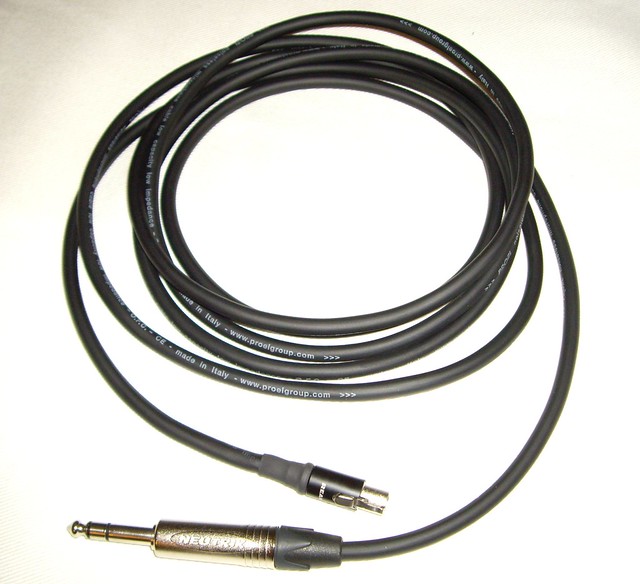I have been a member of various audiophile forums over the past few years and an audiophile for a lot longer than that. I have had various hifi systems over the years and used various cables, from interconnects to speaker to USB to connect my hifi together. Some of those cables have been no name freebies to cheaper cables aimed at the audiophile market such as QED and Silver High Breed to more expensive ones from Kimber and Q-Audio. I have also made my own cables using cheaper, pro audio parts from the likes of Van Damme and Neutrik.
Audiophile forums often crackle with debates about cables and their effects on sound quality. People get very vocal about cables and the arguments mean most cable threads eventually get closed. The arguments are usually cyclical and revolve around 'I can hear a differences', 'no you cannot'. Sadly few people try and add in evidence of what effects cables have and how they work and instead they put forward their own personal experience as some sort of proof. My experience is that even if you do put forward evidence you can be trolled, particularly by those who are cable believers. Many forums even ban the introduction of evidence in the form of blind testing as that is such a controversial topic that really gets audiophiles hot under the collar.
Hence I have resorted to a blog to put forward a theory on how cables work, as most forums do not welcome the debate or stifle or limit such.
Before going any further some definitions;
Audiophile - someone who loves music and is interested in the means of reproducing and the quality of the reproduction of that music.
Cable believer - someone who either does not care how a cable works or believes that cables can inherently affect sound quality by means of their construction and/or what they are made of.
Cable sceptic - someone who either believes that cables do not sound different and/or cannot affect sound quality the way a cable believer thinks that they can.
Sighted testing - where cables are compared with each other and the listener knows which cable they are listening to and in the case of most audiophiles they know about the price, image and reviews of that cable. Virtually all reviews of cables by professionals working for audiophile magazines etc and amateurs on forums are sighted.
Blind comparison testing - where the listeners do not know what they are listening to as cables are switched out of sight of them. The listener is then asked to make subjective assessments of the sound quality.
ABX testing - where listeners do not know what they are listening to and they are asked to identify which cable is which. So they listen to A then B and then either A or B (X) over a series of changes and they have to say whether X is A or B.
At first I was a believer, I heard differences between cables and I still do (even though I am now a sceptic). I was also convinced by the huge number of credible people who also heard differences between cables. I do not think the hifi magazines are out to con people with their reviews. I also do not think that cable makers are all snake oil salesmen out to con people. I believe them when they say that they can hear sound quality differences between cables.
However, as I read more and more cable debates on hifi forums the sceptical side, when allowed, we putting up a strong case to show that cables cannot be affecting sound quality. There is nothing within a cable, the materials it is made out of or the way it is made that can affect sound quality. Then with digital cables comes the added binary code means by which the signal is transmitted. Ones are ones and twos are twos and there is nothing else in the signal. But there is, the timing of the signal which is it out is called jitter and so arguments continued about whether jitter affects sound quality.
I think that many have asked the wrong question about audiophile cables. It is not do they work rather it is why do they work, for some people, some of the time in some systems.
My aim here is to try and rationalise the arguments for and against the effectiveness of audiophile cables and put forward a theory as to how they do work.


No comments:
Post a Comment